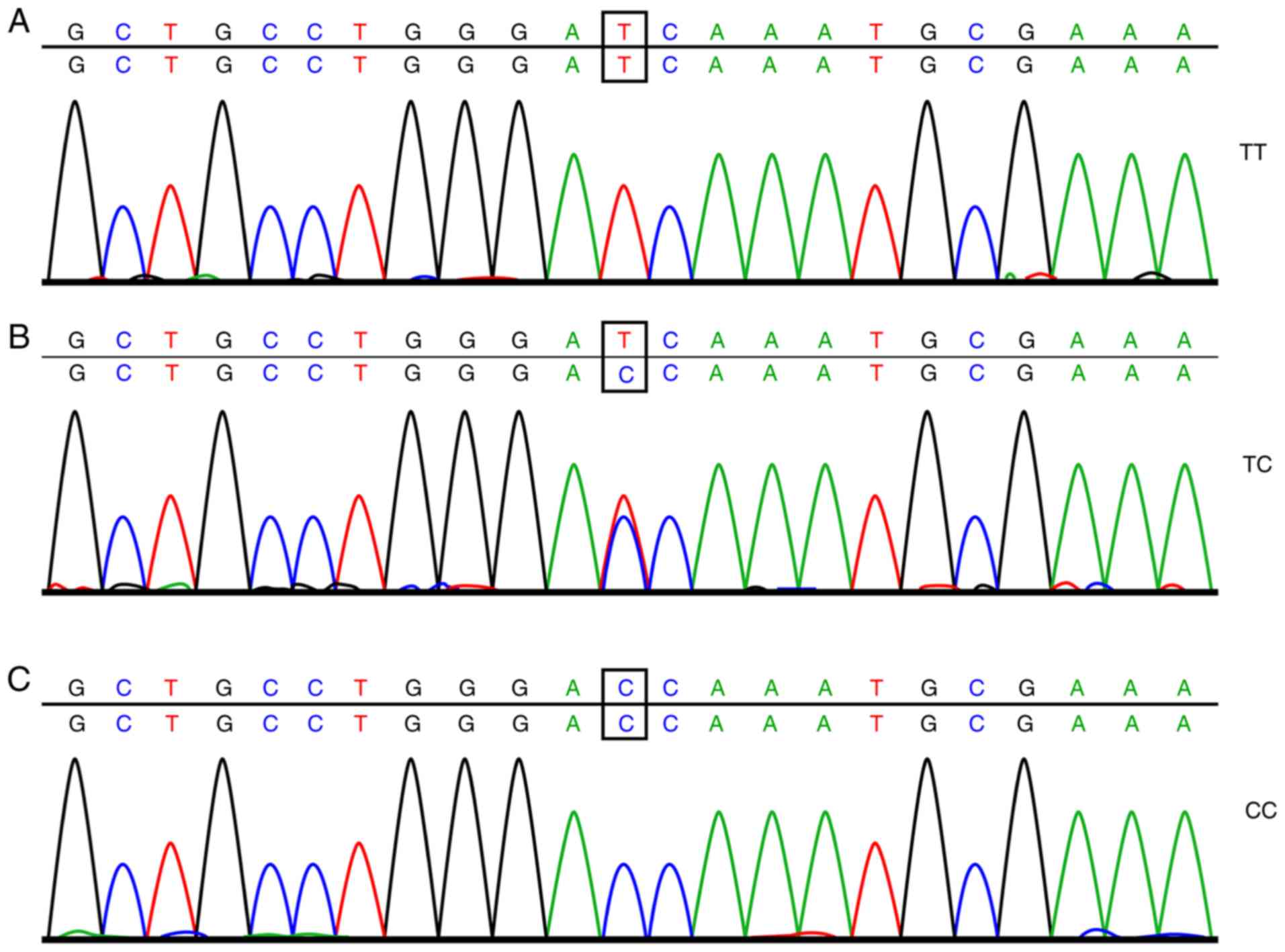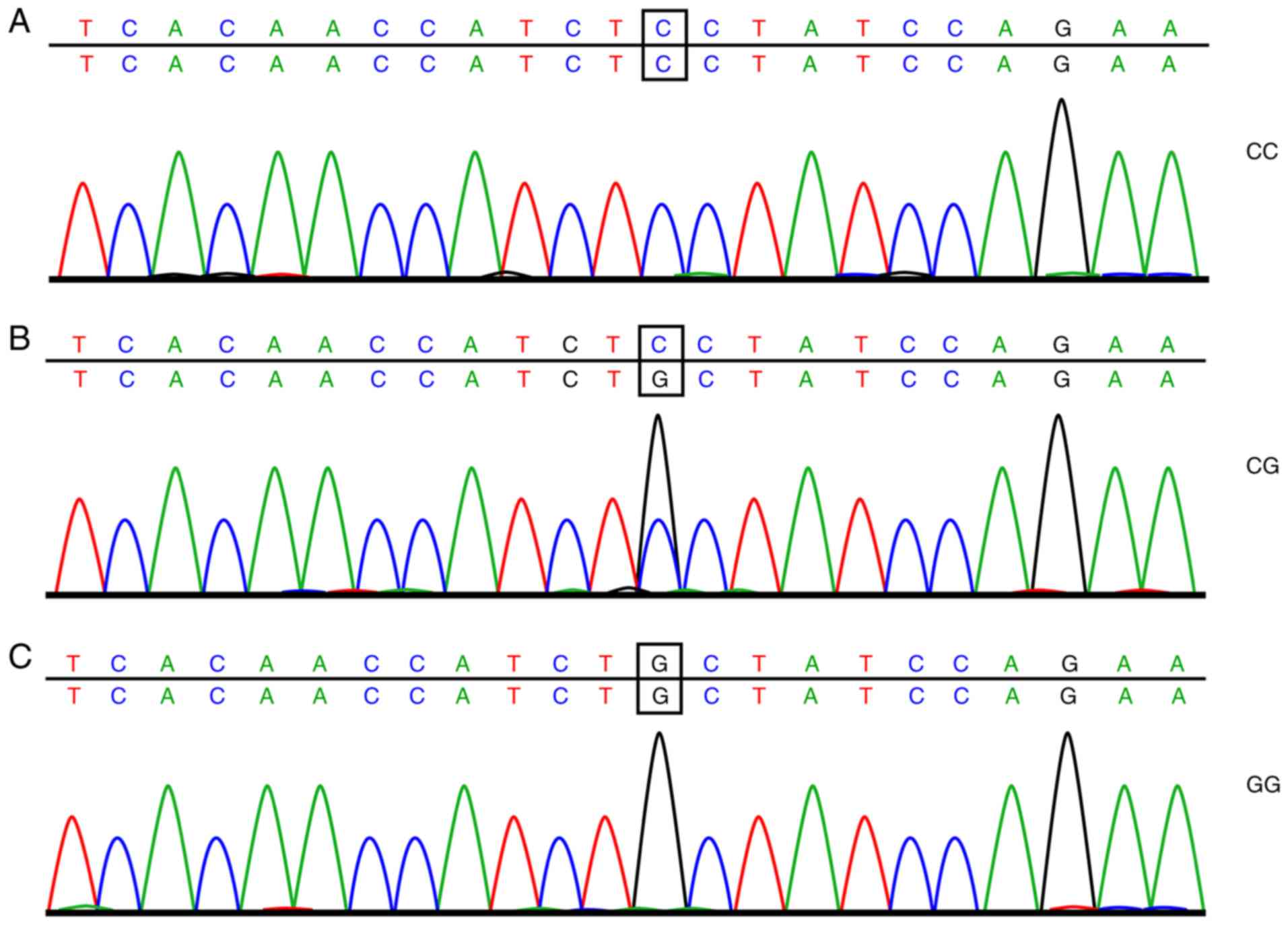|
1
|
Swaroop A, Jaipuriar AS, Gupta SK, Bagchi
M, Kumar P, Preuss HG and Bagchi D: Efficacy of a novel fenugreek
seed extract (Trigonella foenum-graecum, Furocyst) in polycystic
ovary syndrome (PCOS). Int J Med Sci. 12:825–831. 2015. View Article : Google Scholar : PubMed/NCBI
|
|
2
|
March WA, Moore VM, Willson KJ, Phillips
DI, Norman RJ and Davies MJ: The prevalence of polycystic ovary
syndrome in a community sample assessed under contrasting
diagnostic criteria. Hum Reprod. 25:544–551. 2010. View Article : Google Scholar : PubMed/NCBI
|
|
3
|
Goodarzi MO, Dumesic DA, Chazenbalk G and
Azziz R: Polycystic ovary syndrome: Etiology, pathogenesis and
diagnosis. Nat Rev Endocrinol. 7:219–231. 2011. View Article : Google Scholar : PubMed/NCBI
|
|
4
|
Stener-Victorin E, Holm G, Janson PO,
Gustafson D and Waern M: Acupuncture and physical exercise for
affective symptoms and health-related quality of life in polycystic
ovary syndrome: Secondary analysis from a randomized controlled
trial. BMC Complement Altern Med. 13:1312013. View Article : Google Scholar : PubMed/NCBI
|
|
5
|
Costello MF, Misso ML, Wong J, Hart R,
Rombauts L, Melder A, Norman RJ and Teede HJ: The treatment of
infertility in polycystic ovary syndrome: A brief update. Aust N Z
J Obstet Gynaecol. 52:400–403. 2012. View Article : Google Scholar : PubMed/NCBI
|
|
6
|
Wehr E, Pieber TR and Obermayer-Pietsch B:
Effect of vitamin D3 treatment on glucose metabolism and menstrual
frequency in polycystic ovary syndrome women: A pilot study. J
Endocrinol Invest. 34:757–763. 2011.PubMed/NCBI
|
|
7
|
Gourgari E, Spanakis E and Dobs AS:
Pathophysiology, risk factors, and screening methods for
prediabetes in women with polycystic ovary syndrome. Int J Womens
Health. 8:381–387. 2016. View Article : Google Scholar : PubMed/NCBI
|
|
8
|
Li C, Shi Y, You L, Wang L and Chen ZJ:
Melatonin receptor 1A gene polymorphism associated with polycystic
ovary syndrome. Gynecol Obstet Invest. 72:130–134. 2011. View Article : Google Scholar : PubMed/NCBI
|
|
9
|
Hardeland R, Cardinali DP, Srinivasan V,
Spence DW, Brown GM and Pandi-Perumal SR: Melatonin-a pleiotropic,
orchestrating regulator molecule. Prog Neurobiol. 93:350–384. 2011.
View Article : Google Scholar : PubMed/NCBI
|
|
10
|
McClay DR: Evolutionary crossroads in
developmental biology: Sea urchins. Development. 138:2639–2648.
2011. View Article : Google Scholar : PubMed/NCBI
|
|
11
|
Carcangiu V, Luridiana S, Vacca GM, Daga C
and Mura MC: A polymorphism at the melatonin receptor 1A (MTNR1A)
gene in Sarda ewes affects fertility after AI in the spring. Reprod
Fertil Dev. 23:376–380. 2011. View
Article : Google Scholar : PubMed/NCBI
|
|
12
|
Tobias DK, Gaskins AJ, Missmer SA, Hu FB,
Manson JE, Buck Louis GM, Zhang C and Chavarro JE: History of
infertility and risk of type 2 diabetes mellitus: A prospective
cohort study. Diabetologia. 58:707–715. 2015. View Article : Google Scholar : PubMed/NCBI
|
|
13
|
Ren T, Zhu Y and Kan J: Zanthoxylum
alkylamides activate phosphorylated AMPK and ameliorate glycolipid
metabolism in the streptozotocin-induced diabetic rats. Clin Exp
Hypertens. 39:330–338. 2017. View Article : Google Scholar : PubMed/NCBI
|
|
14
|
Lyssenko V, Nagorny CL, Erdos MR, Wierup
N, Jonsson A, Spégel P, Bugliani M, Saxena R, Fex M, Pulizzi N, et
al: Common variant in MTNR1B associated with increased risk of type
2 diabetes and impaired early insulin secretion. Nat Genet.
41:82–88. 2009. View
Article : Google Scholar : PubMed/NCBI
|
|
15
|
Slominski RM, Reiter RJ,
Schlabritz-Loutsevitch N, Ostrom RS and Slominski AT: Melatonin
membrane receptors in peripheral tissues: Distribution and
functions. Mol Cell Endocrinol. 351:152–166. 2012. View Article : Google Scholar : PubMed/NCBI
|
|
16
|
Slominski AT, Zmijewski MA, Semak I, Kim
TK, Janjetovic Z, Slominski RM and Zmijewski JW: Melatonin,
mitochondria, and the skin. Cell Mol Life Sci. 74:3913–3925. 2017.
View Article : Google Scholar : PubMed/NCBI
|
|
17
|
Ying X, Qian Y, Jiang Y, Jiang Z, Song Z
and Zhao C: Association of the apolipoprotein B/apolipoprotein A-I
ratio and low-density lipoprotein cholesterol with insulin
resistance in a Chinese population with abdominal obesity. Acta
Diabetol. 49:465–472. 2012. View Article : Google Scholar : PubMed/NCBI
|
|
18
|
Chin R and Miyazaki S: Criteria of obesity
and obesity disease in Japan. Nihon Rinsho. 67:297–300. 2009.(In
Japanese). PubMed/NCBI
|
|
19
|
Ferriman D and Gallwey JD: Clinical
assessment of body hair growth in women. J Clin Endocrinol Metab.
21:1440–1447. 1961. View Article : Google Scholar : PubMed/NCBI
|
|
20
|
Lucky AW, McGuire J, Rosenfield RL, Lucky
PA and Rich BH: Plasma androgens in women with acne vulgaris. J
Invest Dermatol. 81:70–74. 1983. View Article : Google Scholar : PubMed/NCBI
|
|
21
|
Stumvoll M, Mitrakou A, Pimenta W, Jenssen
T, Yki-Järvinen H, Van Haeften T, Renn W and Gerich J: Use of the
oral glucose tolerance test to assess insulin release and insulin
sensitivity. Diabetes Care. 23:295–301. 2000. View Article : Google Scholar : PubMed/NCBI
|
|
22
|
Abbasi F, Blasey C, Feldman D, Caulfield
MP, Hantash FM and Reaven GM: Low circulating 25-hydroxyvitamin D
concentrations are associated with defects in insulin action and
insulin secretion in persons with prediabetes. J Nutr. 145:714–719.
2015. View Article : Google Scholar : PubMed/NCBI
|
|
23
|
Macut D, Bjekić-Macut J, Rahelić D and
Doknić M: Insulin and the polycystic ovary syndrome. Diabetes Res
Clin Pract. 130:163–170. 2017. View Article : Google Scholar : PubMed/NCBI
|
|
24
|
Genazzani AR and Genazzani AD: Polycystic
ovary syndrome: From contraception to hormone replacement therapy.
Front Gynecol Endocrinol. Springer International Publishing. 2015.
View Article : Google Scholar : PubMed/NCBI
|
|
25
|
Wu D, Kimura F, Takashima A, Shimizu Y,
Takebayashi A, Kita N, Zhang G and Murakami T: Intake of vinegar
beverage is associated with restoration of ovulatory function in
women with polycystic ovary syndrome. Tohoku J Exp Med. 230:17–23.
2013. View Article : Google Scholar : PubMed/NCBI
|
|
26
|
Costello M, Shrestha B, Eden J, Sjoblom P
and Johnson N: Insulin-sensitising drugs versus the combined oral
contraceptive pill for hirsutism, acne and risk of diabetes,
cardiovascular disease, and endometrial cancer in polycystic ovary
syndrome. Cochrane Database Syst Rev. CD0055522007.PubMed/NCBI
|
|
27
|
Esmaeilzadeh S, Andarieh MG, Ghadimi R and
Delavar MA: Body mass index and gonadotropin hormones (LH &
FSH) associate with clinical symptoms among women with polycystic
ovary syndrome. Glob J Health Sci. 7:101–106. 2014. View Article : Google Scholar : PubMed/NCBI
|
|
28
|
Ramezanali F, Khalili G, Arabipoor A,
Bagheri Lankarani N and Moini A: Relationships between serum
luteinizing hormone level, endometrial thickness and body mass
index in polycystic ovary syndrome patients with and without
endometrial hyperplasia. Int J Fertil Steril. 10:36–41.
2016.PubMed/NCBI
|
|
29
|
Kawwass JF, Sanders KM, Loucks TL, Rohan
LC and Berga SL: Increased cerebrospinal fluid levels of GABA,
testosterone and estradiol in women with polycystic ovary syndrome.
Hum Reprod. 32:1450–1456. 2017. View Article : Google Scholar : PubMed/NCBI
|
|
30
|
Njelekela MA, Negishi H, Nara Y, Sato T,
Tomohiro M, Kuga S, Noguchi T, Kanda T, Yamori M, Mashalla Y, et
al: Obesity and lipid profiles in middle aged men and women in
Tanzania. East Afr Med J. 79:58–64. 2002. View Article : Google Scholar : PubMed/NCBI
|
|
31
|
Kalani Z, Salimi T and Rafiei M:
Comparison of obesity indexes BMI WHR and WC in association with
Hypertension: Results from a blood pressure status survey in Iran.
J Cardiovasc Dis Res. 6:72–77. 2015. View Article : Google Scholar
|
|
32
|
Zaki M, Kholoussi S, Ismail S, Raouf HA,
Helwa I, Hassan N, Youness E, Mohamed NA, Kamal S, Yousef W, et al:
Metabolic abnormalities in young Egyptian women with polycystic
ovary syndrome and their relation to ADIPOQ, gene variants and body
fat phenotype. Egypt J Med Hum Genet. 16:367–374. 2015. View Article : Google Scholar
|
|
33
|
Jaworek J, Nawrot-Porabka K, Leja-Szpak A,
Bonior J, Szklarczyk J, Kot M, Konturek SJ and Pawlik WW: Melatonin
as modulator of pancreatic enzyme secretion and pancreatoprotector.
J Physiol Pharmacol. 58 Suppl 6:S65–S80. 2007.
|
|
34
|
Slominski AT, Hardeland R, Zmijewski MA,
Slominski RM, Reiter RJ and Paus R: Melatonin: A cutaneous
perspective on its production, metabolism, and functions. J Invest
Dermatol. 138:490–499. 2018. View Article : Google Scholar : PubMed/NCBI
|
|
35
|
Slominski AT, Semak I, Fischer TW, Kim TK,
Kleszczynski K, Hardeland R and Reiter RJ: Metabolism of melatonin
in the skin: Why is it important? Exp Dermatol. 26:563–568. 2017.
View Article : Google Scholar : PubMed/NCBI
|
|
36
|
Lin FY, Lin CW, Yang SF, Lee WJ, Lin YW,
Lee LM, Chang JL, Weng WC, Lin CH and Chien MH: Interactions
between environmental factors and melatonin receptor type 1A
polymorphism in relation to oral cancer susceptibility and
clinicopathologic development. PLoS One. 10:e01216772015.
View Article : Google Scholar : PubMed/NCBI
|
|
37
|
Song X, Sun X, Ma G, Sun Y, Shi Y, Du Y
and Chen ZJ: Family association study between melatonin receptor
gene polymorphisms and polycystic ovary syndrome in Han Chinese.
Eur J Obstet Gynecol Reprod Biol. 195:108–112. 2015. View Article : Google Scholar : PubMed/NCBI
|
|
38
|
Park HJ, Park JK, Kim SK, Cho AR, Kim JW,
Yim SV and Chung JH: Association of polymorphism in the promoter of
the melatonin receptor 1A gene with schizophrenia and with insomnia
symptoms in schizophrenia patients. J Mol Neurosci. 45:304–308.
2011. View Article : Google Scholar : PubMed/NCBI
|
|
39
|
Del Campo JA, Ampuero J, Rojas L, Conde M,
Rojas A, Maraver M, Millán R, García-Valdecasas M, García-Lozano
JR, González-Escribano MF and Romero-Gómez M: Insulin resistance
predicts sustained virological response to treatment of chronic
hepatitis C independently of the IL28b rs12979860 polymorphism.
Aliment Pharmacol Ther. 37:74–80. 2013. View Article : Google Scholar : PubMed/NCBI
|
|
40
|
Chen Z, Liu W, Sun X and Zhu L: Clinical
study on the association between pregnancy-induced hypertension and
insulin resistance. Exp Ther Med. 13:2065–2070. 2017. View Article : Google Scholar : PubMed/NCBI
|
|
41
|
Diamanti-Kandarakis E: Insulin resistance
in PCOS. Endocrine. 30:13–17. 2006. View Article : Google Scholar : PubMed/NCBI
|
|
42
|
Li Q, Yin RX, Yan TT, Miao L, Cao XL, Hu
XJ, Aung LH, Wu DF, Wu JZ and Lin WX: Association of the GALNT2
gene polymorphisms and several environmental factors with serum
lipid levels in the Mulao and Han populations. Lipids Health Dis.
10:1602011. View Article : Google Scholar : PubMed/NCBI
|
|
43
|
Li C, Shi Y, You L, Wang L and Chen ZJ:
Association of rs10830963 and rs10830962 SNPs in the melatonin
receptor (MTNR1B) gene among Han Chinese women with polycystic
ovary syndrome. Mol Hum Reprod. 17:193–198. 2011. View Article : Google Scholar : PubMed/NCBI
|
















